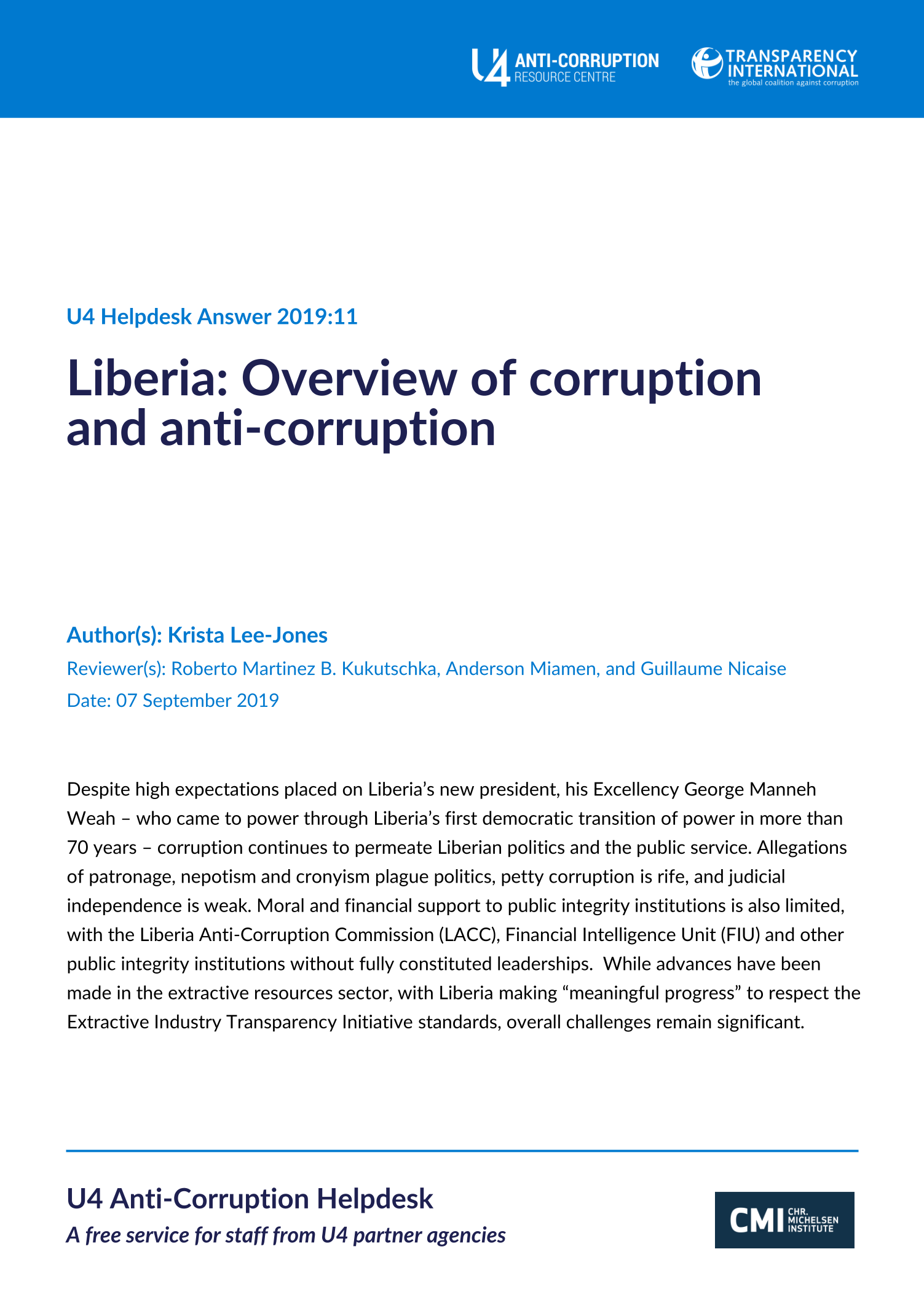Main points
- Allegations of patronage, nepotism and cronyism have continued in Liberia, despite a change in government, which came with high expectations to fight corruption.
- Low salaries are often cited as the reason for petty corruption in the country, especially across all levels of government.
- Legislative framework has little influence on corrupt practices.
- Transparency improvements are significant only in Liberia’s natural resources industry.
